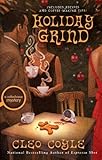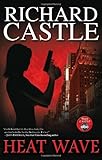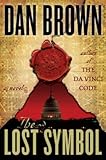
Sarah’s Key
by Tatiana de Rosnay
Get it from Amazon >>
While there is no such thing as a term life insurance policy that repays you if you don’t like a book, it’s a pretty safe bet that if you see enough random strangers reading a novel you’re also considering, it probably doesn’t suck. That’s what happened to me with Tatiana de Rosnay’s recently reprinted novel Sarah’s Key: I’d looked at it in various bookstores on more than one occasion, but hadn’t bought it, and then, finally, after seeing too many other people reading it, I took home a copy of my very own a couple weeks ago.
I read it almost instantly, but haven’t had time to post the review until now.
In Sarah’s Key we are treated to not one, but two stories, one taking place in 1942, and the other in modern France. In the past, we are introduced to a young girl named Sarah. She is awakened one morning by loud knocking at the door of her family’s Parisian apartment, and when her mother answers the knock, they find the police waiting. Sarah’s family is Jewish, and they’re about to be part of one of the largest roundups of French Jews. Her father’s been living in the basement for weeks, anticipating such an event, and her little brother isn’t awake yet.
Given time to gather a few things, Sarah wakes her brother, and sends him to hide in the secret cabinet – literally a hollow space in the wall between two rooms – where they often play, and have created a secret lair, as children do, with food and water and books. She locks him in, and promises to come back. Sadly, she and her parents are then hustled off to the Vélodrome d’Hiver, an indoor bicycle racing arena in Paris, then to a camp outside the city, and then off to Auschwitz. While Sarah does manage to escape before the last transport, and is taken in by a French farmer and his wife, she doesn’t make it back to Paris in time to save her brother.
As Sarah’s story is unfolding in the past, however, Sarah’s Key also introduces us to Julia Jarmond, an American journalist who has lived in Paris for 25 years, and is married to a French architect. She shares a special bond with her grandmother-in-law, who is a feisty old woman, and when she is assigned to cover the memorial of the Vélodrome d’Hiver roundups, it is this woman who reveals that the family moved into their vintage Paris apartment only because it was available after being vacated by Sarah’s family.
As Julia begins to research her story, she finds herself compelled to learn about the family who previously lived in the apartment, and eventually, she does track down Sarah’s surviving family members, but only after her marriage disintegrates.
If this sounds like a depressing story – trust me, it’s NOT. It’s imbued with love and hope, and is written so delicately, so gently, that what should be horrifying instead serves as a backdrop for a wonderful exploration of history and the human heart.






